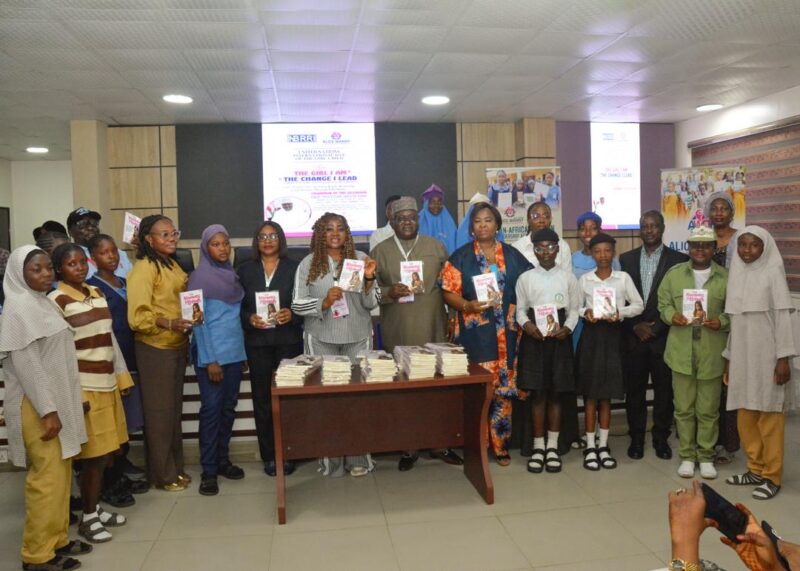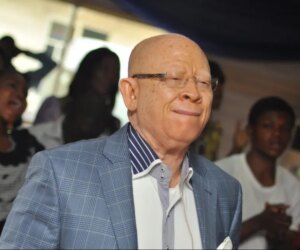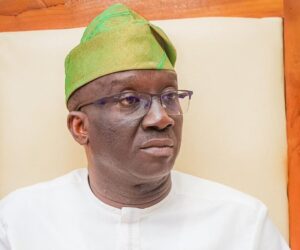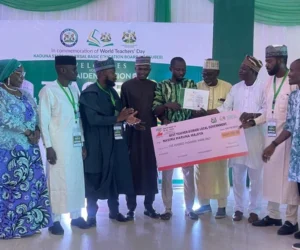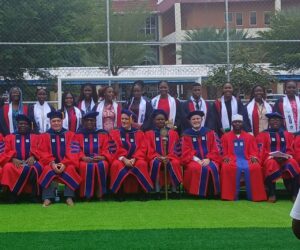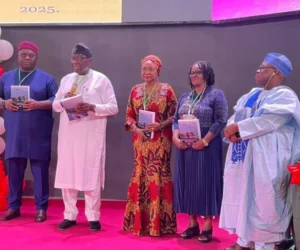By Victor Okoye
The Alice Wanny Development Foundation (AWDF) has trained more than 500 girls in vocational and entrepreneurial skills to mark the 2025 International Day of the Girl Child.
The training, which focused on tiling, flooring, construction safety and entrepreneurship, formed part of the foundation’s second-phase empowerment programme for girls and youths across the country.
Founder and Chief Executive Officer of AWDF, Ms Owan Alice Ada, also launched a scholarship scheme and a book titled From Gloominess to Strengthduring the event held in Abuja.
Owan said the book was inspired by her mother’s experience.
“My mother was denied education, not because of poverty, but because she was a girl. Her dream of becoming a nurse was shattered,” she said.
She said such denial of education had broader social consequences.
“We are all aware of the consequences, gender-based violence, child exploitation, drug abuse and kidnapping,” she added.
According to UNESCO, more than 7.6 million girls are currently out of school in Nigeria, while over 34 million girls remain out of school across sub-Saharan Africa.
Owan said the statistics motivated the establishment of the Pan-African Women Leadership Academy (PAWLA), a new initiative to offer scholarships to children from underserved and vulnerable communities, including orphans.
She said the foundation had already awarded scholarships to no fewer than 20 children, starting from her mother’s hometown in Cross River and expanding to other parts of the country.
“The message of this year’s theme is clear, even in crisis, the light of the girl-child must never be dimmed,” she said.
Owan called for stronger partnerships with government agencies, international organisations and other stakeholders.
“We can’t do this alone. We need more partners to join us in reaching more children,” she said.
Director-General of the Nigerian Building and Road Research Institute (NBRRI), Prof. Samson Duna, commended AWDF for its innovative approach to training girls in construction skills.
He said the foundation introduced the initiative to NBRRI in 2023, leading to a collaboration on hands-on training in painting, POP, tiling and flooring.
“It’s uncommon to see girls trained in these areas. This year, we challenged them to construct an entire building, from foundation to roofing,” Duna said.
He described the challenge as a bold step towards gender inclusion in a male-dominated industry.
“By next year, we hope to see a completed structure entirely built by these girls,” he said.
Also speaking, Mrs Inna Binta Audu, Senior Special Assistant to the President on Humanitarian Affairs and Development Partners, emphasised the need for inclusive education and improved school infrastructure.
“Many girls stay home during their menstrual cycles because schools lack clean toilets. These silent crises must be addressed if we want girls to thrive,” she said.
Audu said advocacy must go beyond policy discussions to practical interventions in communities and schools.
“Girls must be raised not just to receive change, but to lead it,” she added.
Some of the trainees shared their experiences.
Miracle Ochonu, one of the participants, said education remained vital for national development.
“Educating a girl is like educating a nation,” she said.
Another participant, Covenant Chukwu, said the training was an eye-opener.
“I learnt a lot during the two-day training. It helped me discover new career paths,” she said.
Highlights of the event included a dance competition and poetry recitations based on the theme “From Crisis to the Classroom”, which drew standing ovations from guests and participants.
Awards were also presented to individuals and organisations for their contributions to girls’ empowerment and inclusion.
The 2025 International Day of the Girl Child was commemorated globally under the theme “The Girl I Am, The Change I Lead – Girls on the Frontline of Crisis”. (NAN)
Edited by Tosin Kolade

